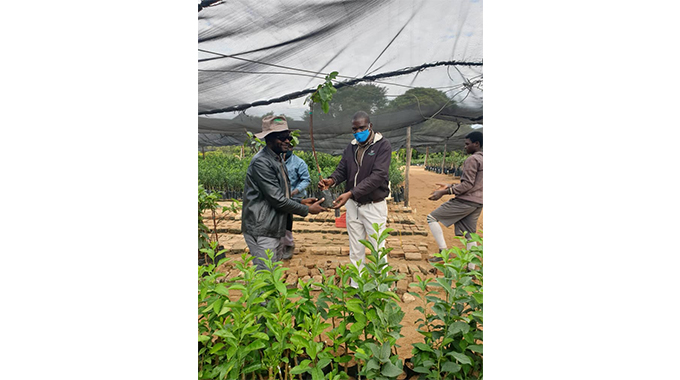
Thupeyo Muleya, Beitbridge Bureau
THE Africa Grain Seeds (AGS) has availed resources that will see a total of 700 000 mixed seedlings being planted at about 100 schools countrywide as part of its climate-smart initiative.
The programme is being implemented through one of AGS partners, the Grow a Tree Foundation (GTF) and is set to promote resilience, especially in rural communities that have been hard hit by perennial droughts.
AGS co-founder and vice president, Mrs Zandile Matiwaza-Denga, said the first donation of 600 seedlings and 75 trees was done at Gwangwava Secondary School in Rushinga District in Mashonaland Central Province.
The area has been experiencing severe droughts more frequently resulting in water scarcity for both household and agriculture.
“This week, schools in Esigodini district will receive their seedlings and Falcon College is set to take the lead in the exercise with 75 trees and 4 000 seedlings,” said Mrs Matiwaza-Denga.
“We decided on this programme to mitigate the effects of climate change in our communities. It is very critical to establish smart technologies for both climate resilient communities and climate resilient schools with the end goal being a sustainable climate resilient future.
“The intervention has seen us launch the establishment of a green orchard of fruit trees and a nutritional vegetable garden funded by AGS and co-ordinated and managed by GTF.”
Mrs Matiwaza said the programme, dubbed the “green schools initiative”, aims to establish climate-resilient environments in rural communities in order to engage learners and young people on climate change.
“This initiative addresses access to power, water, food and nutrition, poverty, education and climate change at large by planting fruit trees, establishing school gardens and drilling solar-powered boreholes among many other initiatives,” said Mrs Matiwaza-Denga.
She said they have donated hundreds of seedlings to villagers in Umzingwane and Gwanda Districts in Matabeleland South under the same programme.
“In Gwanda, women-led projects are enjoying the benefits of the seedlings, which have created a consistent source of income,” she said.
Climate change and conservation issues are growing in prominence with the Government also redirecting efforts in encouraging citizens to be environmentally conscious.
Mrs Matiwaza-Denga said through the Green Schools initiative, school going children who are in dire need will be supported.
She said Zimbabwe was one of the 194 states that signed the Paris Agreement on environment conservation.
“This gave light to the establishment of the tree planting programme that addresses Article 12 of the Paris Agreement,” she said.
“It is expected that through this partnership 100 000 fruit trees will be planted across Zimbabwe over a period of 10 years.”
Mrs Matiwaza-Denga said every “green school” was expected to have at least 500 trees, which will be assigned to students whose growth will be profiled against the growth of the trees.
The initiative, she said, will also seek to improve infrastructure, establish school gardens and address issues that create barriers to education.
The organisation’s director Mrs Beatrice Maseko, said the “green schools” initiative was one of the many ways that the partnership will directly work towards achieving UN Sustainable Development Goals 1, 2, 4, 6 and 10.
“Among issues proffered by the SGDs, the tree planting programme include ending poverty and hunger, achieving food security, nutrition and promoting sustainable agriculture,” she said.
“We recognise that in the past, climate change programmes have failed due to a lack of an integrated approach that considers the interconnectedness and holistic nature of education, nutrition, poverty and other issues that play a role in rural schools,” said Mrs Maseko.
